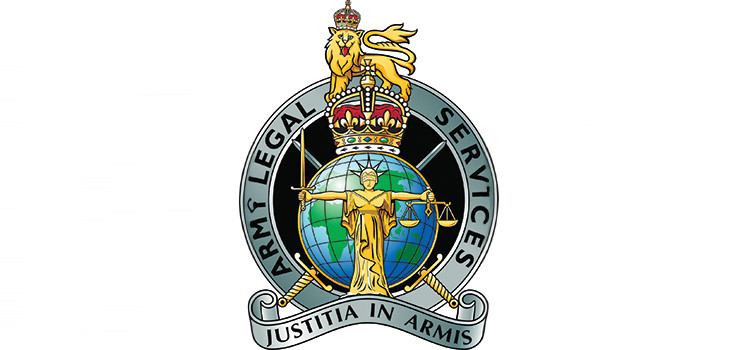*/

Army Legal Services (ALS) is a branch of the Adjutant General’s Corps and the British Army’s in-house counsel. Its responsibilities are extensive, from prosecuting in the Court Martial and giving legal advice on international, civil and military law, to advising on operational law, the law of armed conflict and rules of engagement, and all aspects of service discipline.
ALS encompasses three broad elements – prosecutions, general advisory and operational law – but its barristers will work in all areas during their Army career, from advising the chain of command on the finer points of international law in the middle of a war zone to deciding whether to prosecute a soldier in the Court Martial.
ALS’s three pillars are broken down as follows:
In recognition of their professional qualifications, the ALS is an officer-only branch of the Army. After two weeks of initial training, ALS officers attend a nine-week commissioning course at the Royal Military Academy Sandhurst. There they are put through their paces learning basic military skills, including weapons training and drill, as well as the relevant areas of law and developing their ability to lead and command.
They are then sent out on attachments to combat units often based overseas where they operate as non-lawyers for three months to give them first-hand experience of Army life. Each year, ALS looks to recruit eight to ten fully qualified solicitors, barristers or Scottish advocates who are physically fit and aged between 23 and 32, though this upper age limit may be waived.
Look out for our forthcoming 2025 recruitment campaign in Counsel magazine, and see here to find out more.



Army Legal Services (ALS) is a branch of the Adjutant General’s Corps and the British Army’s in-house counsel. Its responsibilities are extensive, from prosecuting in the Court Martial and giving legal advice on international, civil and military law, to advising on operational law, the law of armed conflict and rules of engagement, and all aspects of service discipline.
ALS encompasses three broad elements – prosecutions, general advisory and operational law – but its barristers will work in all areas during their Army career, from advising the chain of command on the finer points of international law in the middle of a war zone to deciding whether to prosecute a soldier in the Court Martial.
ALS’s three pillars are broken down as follows:
In recognition of their professional qualifications, the ALS is an officer-only branch of the Army. After two weeks of initial training, ALS officers attend a nine-week commissioning course at the Royal Military Academy Sandhurst. There they are put through their paces learning basic military skills, including weapons training and drill, as well as the relevant areas of law and developing their ability to lead and command.
They are then sent out on attachments to combat units often based overseas where they operate as non-lawyers for three months to give them first-hand experience of Army life. Each year, ALS looks to recruit eight to ten fully qualified solicitors, barristers or Scottish advocates who are physically fit and aged between 23 and 32, though this upper age limit may be waived.
Look out for our forthcoming 2025 recruitment campaign in Counsel magazine, and see here to find out more.




Now is the time to tackle inappropriate behaviour at the Bar as well as extend our reach and collaboration with organisations and individuals at home and abroad
A comparison – Dan Monaghan, Head of DWF Chambers, invites two viewpoints
And if not, why not? asks Louise Crush of Westgate Wealth Management
Marie Law, Head of Toxicology at AlphaBiolabs, discusses the many benefits of oral fluid drug testing for child welfare and protection matters
To mark International Women’s Day, Louise Crush of Westgate Wealth Management looks at how financial planning can help bridge the gap
Casey Randall of AlphaBiolabs answers some of the most common questions regarding relationship DNA testing for court
Maria Scotland and Niamh Wilkie report from the Bar Council’s 2024 visit to the United Arab Emirates exploring practice development opportunities for the England and Wales family Bar
Marking Neurodiversity Week 2025, an anonymous barrister shares the revelations and emotions from a mid-career diagnosis with a view to encouraging others to find out more
David Wurtzel analyses the outcome of the 2024 silk competition and how it compares with previous years, revealing some striking trends and home truths for the profession
Save for some high-flyers and those who can become commercial arbitrators, it is generally a question of all or nothing but that does not mean moving from hero to zero, says Andrew Hillier